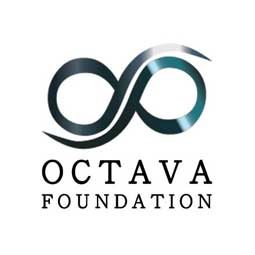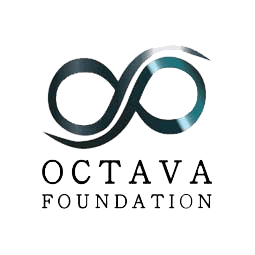How can edtech solutions improve learning outcomes for underserved learners in Southeast Asia while being affordable and accessible?
SUBMISSIONS ARE CLOSED
Overview
By many metrics, Singapore has one of the world’s most high performing primary education systems. Primary school completion is close to 100%, and outcomes in international benchmarking exercises such as the Trends in International Mathematics and Science Study (TIMSS) are routinely high. At the same time, a prevailing emphasis on meritocracy continues to raise concerns about educational disparities for more vulnerable groups.
Data from the TIMSS shows that socio-economic status (SES)-based disparities are present in educational outcomes at the primary school level, both in terms of achievement and learning attitudes/dispositions. As such disparities begin to manifest in the late pre-primary years, opportunities to address them during primary school can be identified. The Ministry of Education has led initiatives such as the set-up of the UPLIFT Programme Office, and has also further undertaken longer-term systemic changes such as altering the PSLE scoring system and moving to Full Subject-Based Banding. However, not all children and families may benefit equally from current efforts, leading to persistent or even widening gaps over time.
About Young Learners Fund
Octava Foundation recently commissioned a Global Evidence Review to understand ‘what works’ in enabling academic attainment for children from low SES families in similar country settings such as Singapore. We also conducted a landscape mapping to understand the current ecosystem of existing services, programs and policy provision and to identify opportunities where Octava Foundation could play an active part in supporting the existing ecosystem.
Informed by our research and landscaping mapping , Octava Foundation has set up a Young Learners Fund in 2022 with an objective to support solutions, organisations and innovators working towards closing the disadvantage gap in education for primary school-aged children from socioeconomically disadvantaged families in Singapore.
Through this fund, we aim to partner with organizations and innovators developing or scaling solutions that:
- Work with the target population of
- Pre-primary school children transitioning into primary school (8-10 months before entry to primary school)
- Early primary school-aged children (P1 & P2 priority age group with other primary grade levels depending on program’s reach)
- Designed to enable Dual Outcomes for children – Learning outcomes and socio-Emotional competencies delivered through either EdTech, in-person, in-school, out-of-school, in-centre settings, with blended and/or a combined approach
- Prioritise monitoring and evaluation for course correction and developing efficacious program design
- Hold a long-term view that ensures that solutions are both cost-effective and sustainable for scaling up and integrating with the present learning ecosystem
- Have the ambition to develop the program to be highly efficacious and the program team to be ‘best in class’
Social purpose organisations, social innovators, and agencies with programs or solutions aligned with the fund’s objectives could apply for:
- a short-term grant to develop a proof of concept for a new intervention design
- a medium to long-term grant to pilot and evaluate the intervention
- a medium to long-term grant to replicate or scale an existing intervention
Octava Foundation takes a venture philanthropy approach to develop long-term partnerships and aims to offer partners grants that also support capacity building and technical assistance to further the partners’ impact. Based on the assessment of the potential partner and when appropriate, Octava Foundation can consider offering flexible grant to access technical expertise such as program design expertise, monitoring and evaluation capabilities or other capabilities that directly contribute to strengthening the intervention.
If you are developing a new solution or improvising an existing solution aimed at minimising the disadvantage gap in education for children from economically disadvantaged families, we would love to hear from you. Please reach out to have a chat with our team at info@octavafoundation.com.
Towards Greater Equity Among Young Learners in Singapore
Around the world, the disadvantage gap related to socioeconomic status (SES) leads to disparities in educational outcomes in terms of achievement and learning attitudes, and Singapore is no exception. While such differences can be observed even in kindergarten, they may not always be redressed effectively.
Interventions that improve future outcomes for students (excluding interventions carried out within the education system or those aimed at addressing the root causes of socioeconomic disadvantage) include those intended to:
- Directly supplement gaps in classroom instruction
- Enhance learning effectiveness
- Take more holistic, non-pedagogical approaches to provide support
To be successful, measures implemented elsewhere need to be adapted as appropriate for the local context. As such, what are the considerations for design and implementation in the Singapore context? How might we advance an evidence-based dialogue on disparities in Singapore?
This white paper by Research for Impact for Octava Foundation discusses potential interventions for Singapore to address this SES-related gap at the primary school stage, applying insights from both published global evidence and local stakeholders.
It is especially relevant for those involved in the public education system, service organizations working to support schools and/or children in community settings, as well as funders targeting children and youth in Singapore.
Download this white paper to learn more about:
- The SES disadvantage gap in education in Singapore, including its potential determinants
- A conceptual framework to describe the landscape in Singapore and define categories for intervention
- Learnings from international practice, based on a review of the relevant academic and peer-reviewed literature
- Insights from informational interviews with Singapore stakeholders
- Possible approaches and suggested next steps in Singapore
* This report was prepared for Octava Foundation by Research For Impact to inform future work on SES-related education disparities. The findings in the report are based on publicly available information, insights from interviews and other sources believed to be true. The findings are for general guidance only, represent a point in time and have not been verified independently. While every effort is made to ensure the accuracy and completeness of the information contained, Research For Impact and Octava Foundation take no responsibility and assume no liability for any error, omission or inaccuracy of the information. Users bear their own responsibility for checking facts and no user can use the report as a basis for any claim, demand or cause of action; Research For Impact and Octava Foundation are not responsible for any loss incurred based upon actions taken as a result of the report.
Download our white Paper – Towards Greater Equity Among Young Learners in Singapore.
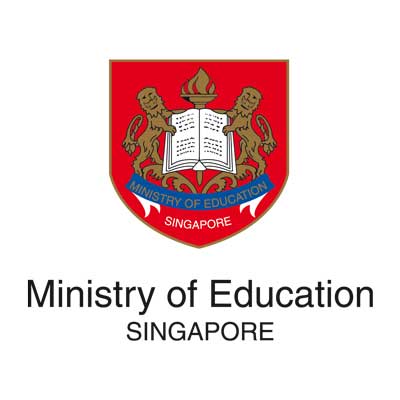
Enhanced Numeracy Enrichment Programme |
Enhanced Numeracy Enrichment Programme
Established in October 2018, UPLIFT (Uplifting Pupils in Life and Inspiring Families Taskforce) is an inter-agency team led by the Ministry of Education (MOE) that aims to support and strengthen the partnership between schools and community partners to enhance upstream wraparound support for disadvantaged students. In particular, UPLIFT is committed to tackling long-term absenteeism – a key barrier that impedes students’ educational progress and prevents them from achieving their full potential.
The Enhanced Numeracy Enrichment Programme leverages the after-school space to complement schools’ efforts in addressing the issue of math-related learning anxiety through a games-based approach to boost learners’ confidence and motivation. The programme is coordinated by MOE who partners Self-Help Groups (SHGs) and community volunteers on the programme. The programme is currently in its pilot phase.
Find out more about UPLIFT here.
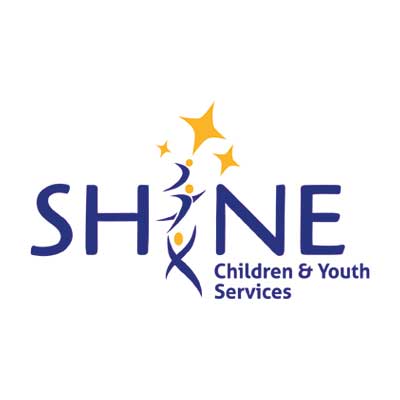
STAR Program |
STAR Program
The STAR program was launched in November 2023 by SHINE Children and Youth Services, a Singapore-based charity that has been supporting children and youth, and their families since 1976 through casework, counselling and education support.
STAR commits to journeying with children from the age of 6 for 8 years through a professional salaried mentor called a ‘Friend’. Each child is paired with a Friend whose core role is to be a trusted adult for the child and support his/her socioemotional competencies and academic learning outcomes. This is done through weekly engagement and curation of opportunities for each child. STAR also extends a trusting friendship to the parents and walks alongside them in supporting their responsive parenting.
The STAR program was inspired by the US-based ‘Friends of the Children’ program and was designed for the local context. Octava Foundation and Research For Impact have been partnering with SHINE from the inception stages of the STAR Program and have started it with a 3-year pilot to support 100 children.
Find out more about SHINE Children and Youth Services here.

Dr Alice Wong
Executive Director of Playwright Children’s Play Association
Alice is passionate about children and play. Play is one of the key ingredients to a healthy childhood. Alice has worked extensively in Asia, designing and implementing early childhood training programs for caregivers working with children in low-resource settings. She also held leadership and teaching positions in tertiary institutions in Canada and Hong Kong. Alice earned her doctorate from the University of Toronto/ OISE in early childhood education and adult learning. Currently, she is the Executive Director of Playright Children’s Play Association, a Hong Kong-based non-profit advocating for children’s play and well-being. She is also serving as the Hong Kong representative for the International Play Association (IPA) and the Asia-Pacific Regional Network for Early Childhood (ARNEC).
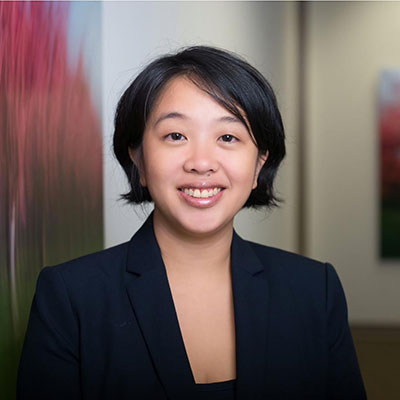
Dr Joanne Yoong
Founder of Research for Impact
Dr Joanne Yoong is the founder and Chief Executive Officer of Research For Impact, a Singapore-based think-tank dedicated to making the behavioural and social sciences accessible, inclusive, and transformative for all. She is an applied micro-economist and interdisciplinary researcher working on consumer and household decision-making in vulnerable populations. Dr Yoong holds multiple faculty appointments and is the author of over eighty peer-reviewed articles in leading economics, medical and public health journals. She has worked on projects around the world including Singapore, the United States, India, China, Ghana, Kenya, Cambodia, Indonesia and Iraqi Kurdistan. Dr Yoong received her PhD in Economics at Stanford University as an FSI Starr Foundation Fellow after an early career in financial services, and her AB summa cum laude in Economics and Applied and Computational Mathematics from Princeton University.
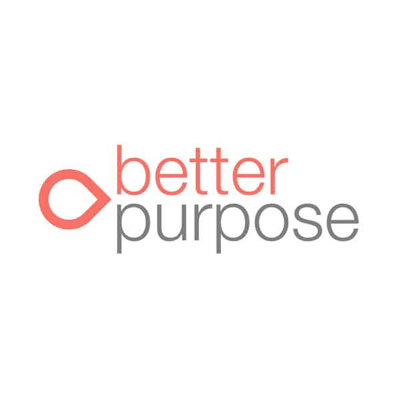
Better Purpose
Better Purpose works to shape and accelerate the work of organisations that seek to make a difference through education. Better Purpose brings rich and varied experience in the education sector, gained from helping clients to address critical challenges, and from operational experience of building and running organisations. The team draws on experience from ‘big four’ consulting (including PwC), start-up consulting business (GEMS Education Solutions), international research and policy organisations (OECD, UNICEF, UNDP and RAND Corporation), philanthropic organisations (Comic Relief, Dubai Cares) and education not-for-profits working internationally (Education Development Trust, the Varkey Foundation, and Ark Education Partnerships Group). The team helps partners navigate complexity by collaboratively defining the challenge to be addressed, curating the right team members and experts to explore the challenge, and finding the right set of solutions to meet the needs of the specific context. We bring capabilities in programme management, stakeholder engagement, strategic consulting, policy analysis, research, and monitoring and evaluation.

Thomas Kaye
Senior Advisor at UNICEF’s Generation Unlimited
Tom Kaye is an international education expert with 15 years of experience working with organisations, including UNICEF, the World Bank, and governments. His experience includes designing, implementing and evaluating education programs in Africa, Asia, and the Middle East.
Tom is currently the Senior Advisor, Global Programmes, at UNICEF’s Generation Unlimited. In this role, Tom works with governments, development partners the private sector, young people, and UNICEF colleagues to build and scale innovative approaches to support the world’s most marginalised 15- to 24-year-olds to transition into decent work. Before joining GenU, Tom was EdTech Hub’s Global Country Engagement Lead, where he built and led a team of 15 people who provided support and guidance to education decision-makers globally on how to impactfully deploy EdTech tools to make education systems more effective, efficient and equitable. Tom is a dual master’s graduate with a Master’s of Public Administration from the Australia and New Zealand School of Government and a Master’s of Evaluation from the University of Melbourne. Tom has also undertaken professional development including at Harvard University and University College London.
